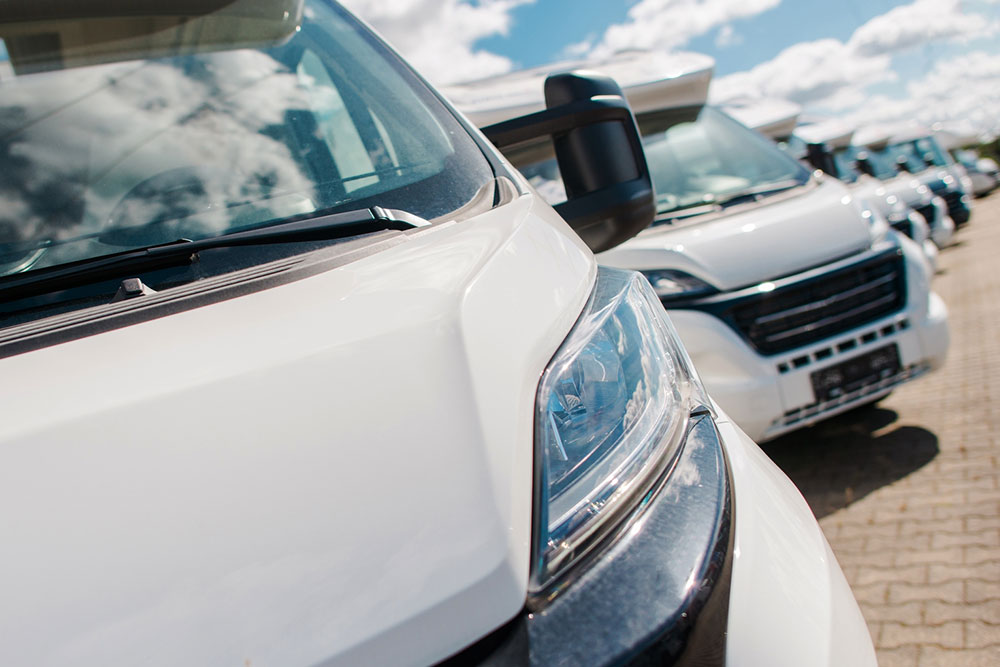
Top 8 mistakes first-time RV buyers should avoid
Recreational vehicles, or RVs, have gained momentum as many travelers have realized the importance of luxurious, private journeys to travel destinations. RVs, also called travel trailers, have several accommodation facilities, such as cooking spaces and living rooms, allowing travelers to spend quality time with their loved ones while traveling in a vehicle that feels like a second home. However, buying an RV is a major decision, so one should research well and avoid certain mistakes.
1. Overlooking RV size
As a first-time RV buyer, one may find it somewhat confusing to determine the right RV size. There are multiple factors to consider when deciding what size of RV one should go for, including the approximate number of travelers, the volume of luggage to be carried, and the average frequency at which one may travel. Buying an RV larger than one requires spending more than necessary, which can cause a financial problem later. Also, such RVs might unnecessarily occupy space in one’s garage. Conversely, tiny RVs may not be comfortable for travelers if the number of passengers is large. That’s why one should consider all such aspects when determining the RV size.
2. Not setting a budget limit
An RV is an expensive, albeit long-term, investment, so considering the budget is essential to buying one. This price range should be based on affordability, which depends on factors like one’s current income, savings, credit report (for loan eligibility), and any other major expenditures. The price should also be estimated based on the size of the RV one requires because prices vary depending on RV size.
3. Ignoring tow weight
Tow weight, or the total towing capacity of an RV, makes a huge difference in one’s travels because if a vehicle is overloaded, it can eventually lead to wear and tear. So, one should check the RV’s towing weight and estimate the average towing capacity one may require, considering the number of travelers and average cargo volume. Such estimation helps find an RV with the most ideal tow weight so that there are no overload issues later.
4. Researching inadequately
These days, many bespoke RV brands are emerging in the market, so one has multiple options when buying an RV. However, not all RV brands may fulfill all of one’s requirements. Plus, the brand should be reliable and trustworthy. That’s why it’s important to thoroughly research all the brands offering RVs, evaluate their core expertise in automotive, specifically in the RV space, and check online reviews and customer feedback.
5. Buying a vehicle with limited or no warranty options
While one may leave no stone unturned to buy an RV from the best brands and dealers, one can never completely rule out the possibility of damage and defects. In such cases, a warranty comes to the rescue by financially compensating the RV owner for any vehicle defects or components. So, one should always look for RVs backed by good warranty plans, including bumper-to-bumper and drivetrain warranties. The company should also offer free vehicle maintenance for the first few maintenance rounds.
6. Overlooking specific features
Recreational vehicles by different manufacturers may have varying features and specs, so one should consider such specific features carefully when looking for an RV. Also, there are pros and cons to every brand of RV. For example, some RVs may have excellent performance features but may lack interior and exterior specs or may not be powered by cutting-edge technology. Some others may have good performance and aesthetic features but poor warranty coverage. For this reason, one should check all the features and specs of RVs carefully and go for the one with fairly good specs in all essential aspects.
7. Deciding between a used or new RV
Used and new RVs have their own distinct pros and cons. When using RVs, one must inspect the vehicle thoroughly and check its past ownership records, vehicle identification number, etc. A brand-new RV doesn’t require such a close inspection; a test drive suffices. Besides, the pleasure of owning a brand-new RV is often unparalleled. At the same time, a second-hand RV in good condition is a great choice for those with a limited budget. Making this decision about whether to go for a used or new RV beforehand helps one prepare well for all the procedures involved in procuring the vehicle in either case.
8. Not being aware of the maintenance involved
Buying an RV doesn’t end with the purchase; one also needs to factor in the maintenance involved after securing vehicle ownership. For example, there is a risk of water damage with RVs, and it can eventually cause mold and mildew formation if left untreated. That’s why one should buy RVs that are water-resistant and constantly check the floors and walls for any leakage or damage. Rust and corrosion are also common in RVs, so it’s important to maintain the RV’s doors and windows well. Similarly, plumbing issues may crop up if one doesn’t use RV toilet paper, which breaks down more easily than the regular one. If one knows the maintenance costs beforehand, one can be mentally and financially prepared.







